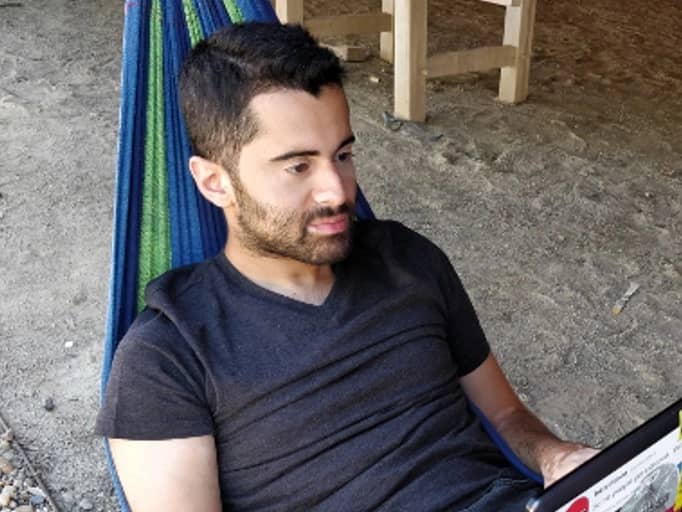Subscribe to wiki
Share wiki
Bookmark
Mustafa Al-Bassam
The Agent Tokenization Platform (ATP):Build autonomous agents with the Agent Development Kit (ADK)
0%
Mustafa Al-Bassam
Mustafa Al-Bassam is the co-founder and CEO of Celestia. Al-Bassam co-founded Chainspace, a company working on a smart contract platform, eventually acquired by Facebook in 2019.[1][2] In 2016, Forbes recognized Al-Bassam as one of the 30 Under 30 entrepreneurs in the technology sector. [3]
Early Life & Education
Born in January 1995, Al-Bassam earned a Doctor of Philosophy (Ph.D.) in Computer Science from University College London (UCL), earned between 2016 and 2020. His doctoral research focused on "Securely Scaling Blockchain Base Layers," funded by the Alan Turing Institute, and the thesis passed without corrections. Prior to this, he obtained a Bachelor's Degree in Computer Science from King's College London, graduating with first-class honors in 2016. During his undergraduate studies, he was involved in the Tech Society and the Informatics Staff-Student Liaison Committee. Additionally, he participated in an academic research fellowship and organized hackathons with the Tech Society. Preceding his university education, he completed A-levels at the City of London Academy, Southwark, focusing on A2 Mathematics, A2 Biology, A2 Chemistry, and AS Psychology, achieving a grade of AAAb. [4][5][7]
Hacktivism
Mustafa Al-Bassam started programming when he was nine years old and did his first hack while using an online calculator for his math homework. [8]
He extended his activities by breaching his school's website, revealing confidential data like teachers' salaries and classmates' grades. Subsequently, he became associated with Anonymous, a global movement engaged in cyber attacks against various entities. One of Mustafa's early operations with Anonymous involved hacking the Prime Minister of Tunisia during a time of revolution in Tunisia and Egypt. [8]
"We replaced his front page with a message to support the revolution," he stated. Mustafa clarified that Anonymous aimed not to showcase hacking skills but to underscore the poor security practices of the targeted companies. He recounted an incident where he hacked a tech security company called HBGary Federal, which had claimed to know the identity of Anonymous's leaders. [8]
"The CEO was using the same password for his email account, his PayPal account, his World of Warcraft account, and pretty much every single account. So we managed to get access to his entire online life."
Afterwards, he co-founded LulzSec, a hacking group that operated without political motives, targeting various companies. At the age of 16, he executed notable hacks on Fox, The Sun, the FBI, the Arizona Police Department, and the US Senate. Subsequently, legal consequences ensued, leading to his arrest by London's Metropolitan Police for involvement in 80 cyber attacks at the same age. As a result, he received a two-year Internet ban as part of his bail conditions. [8][9]
Career
Currently serving as the Co-Founder and CEO of Celestia Labs since September 2019, AI-Bassam also worked as an Advisor at Nym from October 2019 to November 2021 and provided expertise to Secure Trading from February 2016 to May 2019. He was the Co-Founder and Researcher at Chainspace, which was acquired by Facebook, from August 2018 to February 2019. In this role, he conducted scientific research on scaling blockchains at the base layer to develop a sharded smart contracts platform. His career includes a Software Engineer Intern role at SwiftKey (acquired by Microsoft) in 2015, contributing to the optimization of systems for processing application usage statistics. He also worked at King's College London as an Information Security Analyst Intern and an Informatics Research Fellow. Additionally, he served as a Technology Intern at Privacy International, where he wrote code for GSM software to detect IMSI catchers and provided technical research support. [10]
Publications
Some of AI-Bassam's publications include: [6]
- SoK: Communication Across Distributed Ledgers
Alexei Zamyatin, Mustafa Al-Bassam, Dionysis Zindros, Eleftherios Kokoris-Kogias, Pedro Moreno-Sanchez, Aggelos Kiayias and William J. Knottenbelt.
Financial Cryptography and Data Security (FC), 2021. - Fraud and Data Availability Proofs: Detecting Invalid Blocks in Light Clients
Mustafa Al-Bassam, Alberto Sonnino, Vitalik Buterin and Ismail Khoffi.
Financial Cryptography and Data Security (FC), 2021. - Replay Attacks and Defenses Against Cross-shard Consensus in Sharded Distributed Ledgers
Alberto Sonnino, Shehar Bano, Mustafa Al-Bassam and George Danezis.
IEEE European Symposium on Security and Privacy, 2020. - SoK: Consensus in the Age of Blockchains
Shehar Bano, Alberto Sonnino, Mustafa Al-Bassam, Sarah Azouvi, Patrick McCorry, Sarah Meiklejohn and George Danezis.
Advances in Financial Technologies (AFT), 2019. - Proof-of-Prestige: A Useful Work Reward System for Unverifiable Tasks
Michał Krol, Alberto Sonnino, Mustafa Al-Bassam, Argyrios Tasiopoulos and Ioannis Psaras.
IEEE International Conference on Blockchain and Cryptocurrency (ICBC), 2019. - Coconut: Threshold Issuance Selective Disclosure Credentials with Applications to Distributed Ledgers
Alberto Sonnino, Mustafa Al-Bassam, Shehar Bano, Sarah Meiklejohn and George Danezis.
The Network and Distributed System Security Symposium (NDSS), 2019. - Contour: A Practical System for Binary Transparency
Mustafa Al-Bassam and Sarah Meiklejohn.
International Workshop on Cryptocurrencies and Blockchain Technology (CBT), 2018. - Chainspace: A Sharded Smart Contracts Platform
Mustafa Al-Bassam, Alberto Sonnino, Shehar Bano, Dave Hrycyszyn and George Danezis.
The Network and Distributed System Security Symposium (NDSS), 2018. - Who Am I? Secure Identity Registration on Distributed Ledgers
Sarah Azouvi, Mustafa Al-Bassam and Sarah Meiklejohn.
International Workshop on Cryptocurrencies and Blockchain Technology (CBT), 2017. - SCPKI: A Smart Contract-based PKI and Identity System
Mustafa Al-Bassam.
ACM Workshop on Blockchain, Cryptocurrencies and Contracts (BCC), 2017. - Take-away TV: Recharging Work Commutes with Predictive Preloading of Catch-up TV Content
Dmytro Karamshuk, Nishanth Sastry, Mustafa Al-Bassam, Andy Secker and Jigna Chandaria.
IEEE Journal on Selected Areas in Communications (J-SAC), 2016.
See something wrong?
The Agent Tokenization Platform (ATP):Build autonomous agents with the Agent Development Kit (ADK)
